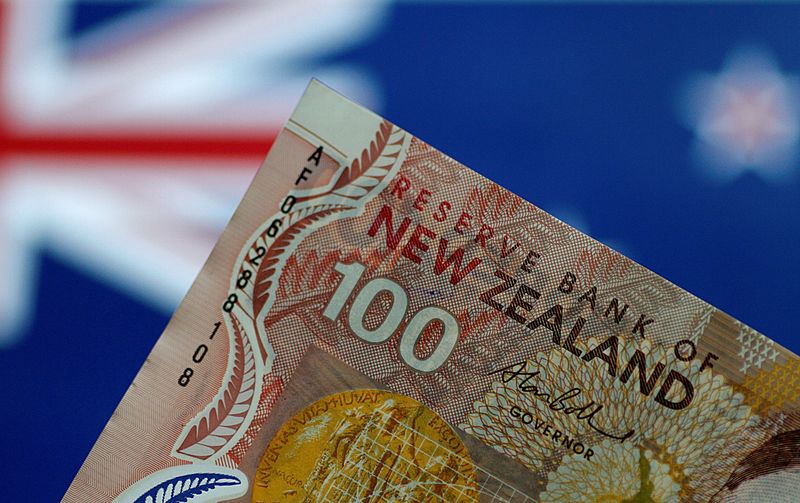 © Reuters. FILE PHOTO: A New Zealand Dollar note is seen in this picture illustration June 2, 2017. REUTERS/Thomas White/Illustration/File Photo/File Photo
2/2
© Reuters. FILE PHOTO: A New Zealand Dollar note is seen in this picture illustration June 2, 2017. REUTERS/Thomas White/Illustration/File Photo/File Photo
2/2
By John McCrank
NEW YORK (Reuters) - The U.S. dollar rose on Wednesday, holding most of its earlier gains after minutes from the Federal Reserve's May meeting showed that most participants believed half-percentage-point rate increases would likely be appropriate in June and July.
All participants at the May 3-4 policy meeting backed the Fed's 50 basis point rate increase this month to combat inflation they agreed had become a key threat to the economy's performance and was at risk of accelerating without central bank action, the minutes of the session showed.
"As it conducts a pair of 50 bp rate hikes during the next two months, the Fed will likely keep its cards closer to its chest, waiting to see how the outlook and risks unfold before proffering what we expect will be another strong policy signal. That is, unless further worrisome inflation developments force the Fed to lay its cards on the table.", said Michael Gregory, deputy chief economist at BMO Capital Markets.
Treasury yields were little changed after the Fed minutes. U.S. 10-year Treasury yields, which hit 3-1/2-year highs earlier in May, briefly hit six-week lows on Wednesday after data showed new orders for U.S.-made capital goods rose less than expected in April. 5db545f3-0f6c-4f28-b9f2-4d05db379e772
Graphic: Dollar and Treasuries, https://fingfx.thomsonreuters.com/gfx/mkt/xmpjoxbadvr/Pasted%20image%201653476349408.png
The U.S. dollar index, which measures the greenback against a basket of peer currencies, dipped slightly after the Fed minutes and was up 0.285% at 102.04, at 3:00 p.m. Eastern time (1900 GMT).
The dollar had fallen to a one-month low on Tuesday after European Central Bank chief Christine Lagarde flagged an end to negative interest rates in the euro zone in the third quarter, giving the euro a boost.
Lagarde's comments implied an increase of at least 50 basis points in the deposit rate and fueled speculation of bigger hikes this summer.
But while that lifted the euro to one-month highs of $1.0748 on Tuesday, it slipped 0.42% on Wednesday, to $1.0690.
ECB board member Fabio Panetta took some steam out of the single currency when he warned of a "normalisation tantrum" caused by taking interest rates to "neutral" settings.
Dutch central bank chief Klaas Knot, meanwhile, said the ECB may not discuss reducing its balance sheet this year, as it focuses on rate hikes
The euro also pulled back 0.34% against the Swiss franc, which has firmed in recent days after Swiss central bank officials said they would not hesitate to tighten policy if inflation stayed above target ranges.
Elsewhere, the Reserve Bank of New Zealand became the latest central bank to raise interest rates by half a point. While that move was expected, it also provided hawkish guidance on its policy path, noting a larger and earlier hike reduced the risk of inflation becoming persistent.
That had helped the kiwi dollar rise as much as 0.8% at one point to a three-week peak of $0.6514. But as the U.S. dollar gained momentum, the kiwi ceded most its gains, last trading up 0.3% at $0.6480.
"The RBNZ move shows central banks are not in a mood to slow down. Conditions are pretty tight in a lot of G10 economies, and it's a hint that in the short term policy tightening will remain aggressive," said Colin Asher, senior economist at Mizuho in London.

